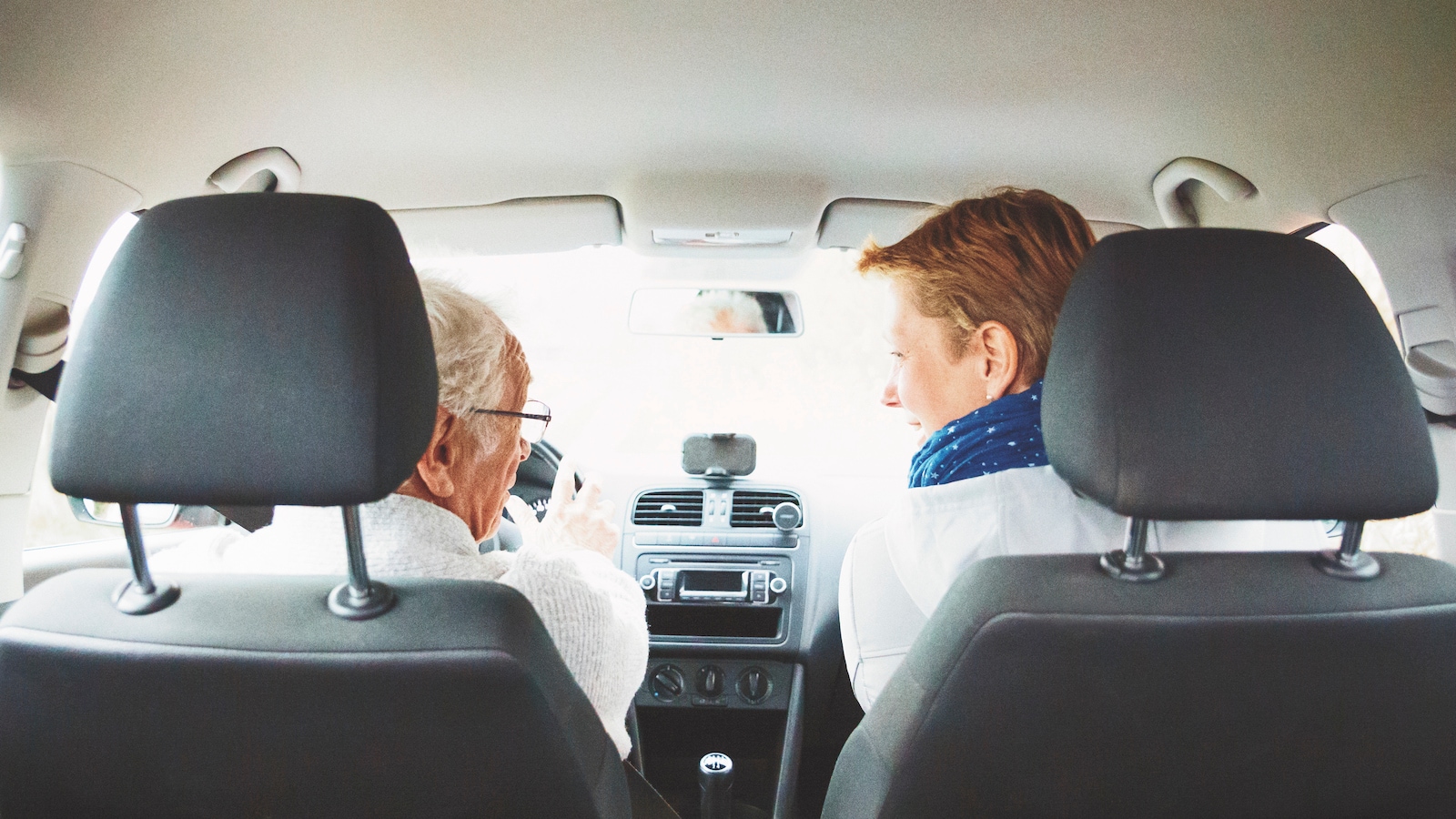Hobbies are important at any age, but for seniors, who are more at risk for depression, loneliness, cognitive decline and more, they’re particularly important.
“Hobbies, in essence, contribute to a higher quality of life by enhancing mental, social, physical and emotional well-being,” explains John A. Masso, who has a master of science in nursing and is the community outreach nurse at Holy Name Medical Center in Teaneck, NJ.
Whether you’re trying to find hobbies for yourself, a loved one or a client, check out our list of hobbies for seniors of all ability levels, along with insight as to why they’re so important later in life.
“Hobbies, in essence, contribute to a higher quality of life by enhancing mental, social, physical and emotional well-being.”
— John A. Masso, community outreach nurse
Why is it important for older adults to have hobbies?
As Dee Jacobi-Edwards, a licensed clinical social worker with Thriveworks in Alexandria, Virginia, puts it: Older adults that participate in hobbies “experience such emotions as happiness, contentment, enjoyment being active and not stagnating.”
The reason, she explains, is because hobbies are pursued for pleasure and relaxation, not work. And at the same time, they’re mentally stimulating.
“If older adults don’t stay active in mind, body and spirit, then they do not get positive feedback from their own brains and will self-isolate, becoming depressed from lack of stimuli,” she explains.
Hobbies for seniors
Looking for a hobby but not sure what to pursue or suggest? Here’s a list of hobbies for seniors of every age and cognitive and physical ability, as suggested by Jacobi-Edwards and Masso.
Hobbies for active seniors
“Nowadays, older adults are not their grandparents — many were active in their younger days and want to stay that way,” notes Jacobi-Edwards, adding: “Regular movement is important for overall wellness and can reduce the risk of various physical and mental health issues.”
Here are a few ideas for seniors who are extremely or moderately active, or for those looking to get started. Note: It’s important to consult a healthcare professional before starting any fitness routine.
- Train for a marathon. Don’t know where to begin? Check out this senior marathon training schedule.
- Take up swimming. The U.S. Swimming Masters has Club Finder to research swimming groups and clubs in your area.
- Take up yoga. For folks who would rather do yoga at home, the wildly popular Yoga With Adriene has a Yoga for Seniors sequence. Also, consider chair yoga for seniors.
- Try trail walking or hiking. Check out Walk With a Doc for a walking group in your area.
- Garden. Tending to a personal or community garden can be particularly beneficial for seniors with cognitive decline.
- Try cycling. Check out Senior Cycling for fun and unique cycling tours for folks 50 and up.
- Take up Tai Chi. Tai Chi has long been proven to be a safe, relaxing physical activity for seniors. Find a local group or try an online Tai Chi video.
Creative hobbies for seniors
Hitting the trails not your thing? That’s OK! There are plenty of hobbies that flex creative muscles, which can be just as beneficial.
“Creative hobbies can be a source of continual learning and personal growth,” Jacobi-Edwards notes. “Trying new things or deepening existing skills can keep life interesting and invigorating.”
Masso adds that creative pursuits and hobbies can also provide a sense of accomplishment.
Here are a few creatives hobbies for seniors to consider:
- Take a painting class. Painting, and art in general, can be particularly therapeutic for seniors with cognitive impairments. Inquire about classes held at community centers and nursing homes, or search out senior art classes near you.
- Take a photography class. Find a local photography course in your area or consider taking an online course, geared towards seniors looking to start a photography business!
- Start baking. According to the Avila Institute of Gerontology, baking can be particularly therapeutic for seniors with dementia.
- Knit or crochet. Sheep and Stitch has a number of knitting videos on YouTube, including one for complete beginners.
- Vow to try one new recipe a week or experiment with different cuisines. Cozy Meal has a number of in-person cooking classes geared towards seniors across the U.S.
- Start writing. Creative writing for seniors can boost mental stimulation and be an emotional and creative outlet. Try these question prompts to get started.
- Learn to sew. Sew It! Workshop provides pop-up sewing classes for adults 50 and up at libraries, community centers and more.
- Try woodworking. Don’t know where to start? Check out these woodworking projects for seniors.
- Take up bird-watching. There are a number of benefits of bird-watching for seniors, including stress-reduction and increasing mental alertness.
Hobbies for seniors that help with cognitive function
Participating in hobbies that keep the brain engaged regularly should be nonnegotiable, Jacobi-Edwards notes, as they can help prevent cognitive decline.
“Keeping the brain active through hobbies or other activities is important for everyone but especially for those who are older,” she says. “As we age, it becomes kind of a ‘use it or lose it’ situation.”
Here are a few hobbies for seniors to consider:
- Learn a new language. There are a number of benefits to learning a new language as a senior, including the promotion of neuroplasticity. There are endless apps for the job, including the highly rated Pimsleur, which offers a free trial.
- Start doing jigsaw puzzles. For seniors with cognitive impairment, try large piece puzzles.
- Start doing crossword puzzles. There are endless crossword puzzles to choose from, including printable, large print crosswords.
- Start doing sudoku puzzles. For tech-savvy seniors, consider the Vita Sudoku for Seniors app.
- Host or take part in game nights. One study found that older adults who regularly play board games score higher on cognitive tests than those who don’t.
- Learn to play an instrument. Save the Music has a list of the easiest instruments to learn at any age.
- Pick up some tech skills. Most libraries offer senior tech classes and help, but for folks with limited mobility, consider CyberSeniors, which offers a host of tech information and lessons for seniors, both online and in person.
- Try a brain-training app. According to the Mayo Clinic, brain-training apps are “promising.” Some of the more popular choices are Lumosity, BrainHQ, Elevate and Peak.
- Learn to meditate. There are a number of in-person and online tutorials for beginners, but this guided meditation is geared toward seniors.
Hobbies for seniors that promote socialization
Many of the activities above, such as doing puzzles, gardening or playing board games, can be done with others, notes Masso, who adds: “Any activity done in a group setting provides social engagement, reduces the risk of depression, anxiety and loneliness and improves cognitive function, boosts self-esteem and promotes emotional well-being.”
In other words: The ROI on group activities for older adults is massive. Here are a few options to consider:
- Join a book club. Most community centers, religious organizations and libraries have or can recommend in-person book clubs for seniors. But for those who prefer to stay at home, there are a number of online book clubs to join.
- Take group fitness classes. Silver Sneakers has a list of both online and in-person classes for older adults, broken down by type.
- Go fishing with friends. One study found that adults who fish are less likely to feel depression and anxiety.
- Join a bowling league. Most areas already have bowling leagues for seniors, but to start one, visit the National Association of Activity Professionals.
- Play bingo. Almost every library, community center and nursing home hosts weekly or monthly bingo nights.
- Research senior travel tours. There are a number of travel groups geared toward active seniors, including G Adventures and Go Ahead Tours.
- Volunteer. “Volunteering can give a sense of purpose and a feeling of belonging to a group,” notes Masso. “Possible volunteer opportunities may include helping out at local charities or community organizations.”
According to Jacobi-Edwards, when done in a group setting, hobbies are even more beneficial than when done on their own. “Maybe someone notices the fun we are having and comes over to talk, making a new friend. When we feel positive in mind, body and spirit, we don’t focus so much on the negativity around us. We are not sitting and waiting for our family to visit us to break up the monotony of the days, but engaged with our families or friends, doing something, producing more feel-good brain chemicals.”
What are the benefits of hobbies for seniors?
According to Masso, seniors engaging in hobbies can reap the following benefits:
- Improved physical health.
- Improved emotional well-being.
- A sense of purpose.
- Structure and routine.
- Learning and growth.
- Mental stimulation.
“When we engage in a hobby, the brain releases endorphins, making us feel contentment and pleasure,” Jacobi-Edwards adds. “Plus, if you’re feeling upset or angry and you decide to participate in your chosen hobby, it can boost your mood. It’s difficult to be upset when you’re doing something you enjoy.”
Ultimately, the hobby itself doesn’t matter — so long you have one, notes Masso. “Staying physically, mentally and emotionally active, even through small things like getting out to a book group or just getting out of the house to go somewhere can be extremely beneficial to older adults.”
The bottom line
The benefits of hobbies for seniors are endless — and there’s no right or wrong when choosing which one(s) to pursue. The biggest benefits are reaped, Jacobi-Edwards notes, when you “find something you enjoy and others who enjoy doing it with you!”





